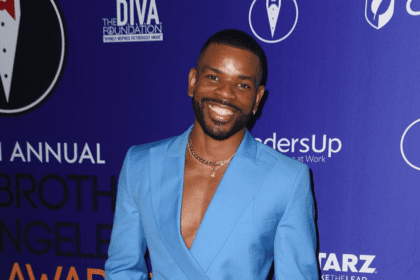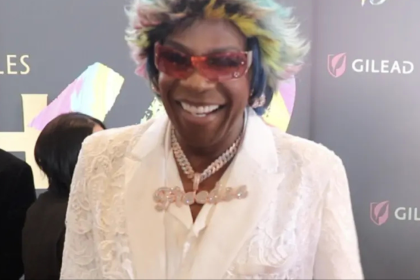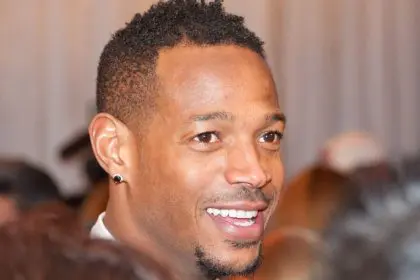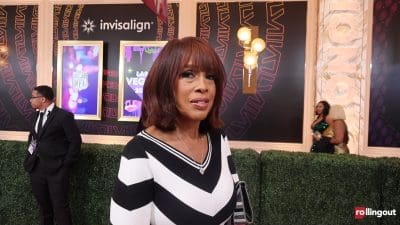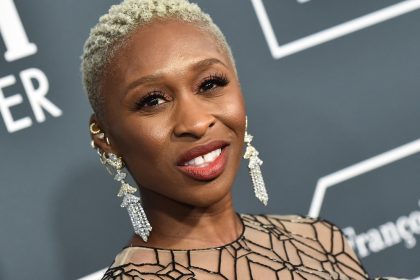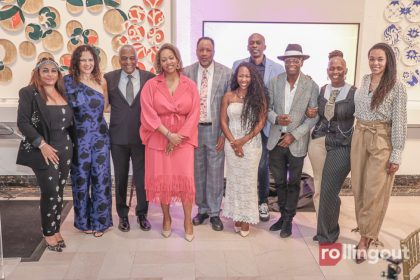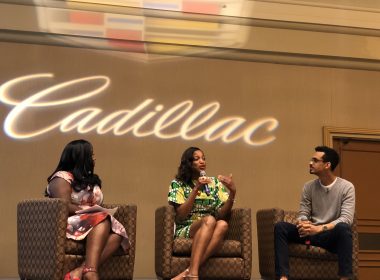
It was like the South was in a time capsule and the clock rewound back to the 60’s Civil Rights Movement, the only difference is Atlanta’s skyline wasn’t quite as intriguing as it is today. And this time, one of the main organizers of this rally was female. Born and bred in Atlanta, spoken word artist and outspoken activist, Aurielle Lucier, shut down Atlanta’s Interstate 75/85 northbound Wednesday, Oct. 22, 2014, in protest of Ferguson, Missouri. teen Mike Brown’s brutal murder on Aug. 9, 2014, by a White police officer.
Here, Lucier, one of the grassroots organizers of the rally shares why she felt compelled to be a part of this movement, her invitation to Harvard University and why this platform is important for the LGBTQ community.
Why did you feel compelled to start this movement?
I don’t really think that I’ve started anything, to be honest. This “movement” has been going on for generations. This time around however, it looks a little different, and I’m so thankful to be a small and powerful part of it. I’m more of a vessel belonging to this revolution than a leader of it. For me, the inspiration for being a vessel comes from hip-hop and poetry. Our people are so beautiful and express themselves in such transformative mediums. Poetry saved my life. Hip-hop opened my eyes to the trauma our people are still trying to process and heal since we were brought to this country. And once your eyes are open, you want everyone to see as clearly as you do.

How do you get the word out?
I think its important to say that young people are geniuses. We’ve used social media and new age technology to connect ourselves to a universal narrative. Its been our most powerful weapon in this fight. In the very beginning, I wasn’t even trying to revive the fighting spirit of our city. I was merely tweeting, hosting dialogue with my friends and peers … Suddenly I got an urge to call all of us to action. I put my number out, added a hashtag, and suddenly “#ItsBiggerThanYou” became both an event, and an online safe space for dialogue. The word spread about both, and then we gathered with 5,000 people to take the next step at the CNN march.
Are you a part of any historic civil rights organizations? Why or why not?
I currently have no connections to any historical organizations. In my community, I have not consistently seen the presence of the groups we once regarded as our heroes. Our young people are in need. Our leaders desire support and nurturing. I have not seen, in my many years of activism and community involvement, our elders always owning that space and filling needs in the Atlanta community. They have been, in my experience, at press conferences and panel discussions to represent “us”… but not on the corner of Joseph E. Lowery Blvd. and MLK Drive to rehabilitate us. And that’s important. I have, however, always seen grassroots organizers, holistic leaders, and spiritual vessels give our city all that they have. Completely selfless. Those are the leaders that I wish to embody.
What is the difference between this millennium movement and the 60’s movement?
I think Tef Poe, cofounder of Ferguson’s Hands-Up United, says it best: “This is not your daddy’s revolution.” And it isn’t, nor should it be. I think we are more inclusive, more open to facilitating relationships between communities one might not have considered in a more traditional era. As a queer womyn, I think that its important that I use this platform to talk about the violence against Queer and Trans bodies, as much as I talk about the violence against our black men and womyn. Bayard Rustin was an extremely important contributor to the Civil Rights Movement, and yet, very few people know his name because he was gay. We can’t afford to make the same mistake. We aren’t afraid to talk about intersectionality. We’ve seen young people all over this nation put their bodies on the line, and risk their lives for this fight, wearing sagging pants, mini skirts, and hoodies. There’s a different energy here. This movement is for everyone.

Whose responsible for the misconception of Black men?
We’ve been fed the same narrative for centuries: Black people, Black men specifically, are dark volatile things worthy of execution. During slavery, Black men were forced to fight each other to the death for the entertainment of White people. Post slavery, cultural propaganda warned White women to guard themselves and their children against the “Black brutes.” During the civil rights movement, ancestors like Emmett Louis Till and Lamar Smith were killed because “Black” meant “danger. That narrative, pushed by White supremacy, hasn’t changed. It has in fact, been buried in the skin of this nation. Our young Black men have internalized this stereotype and we can see those effects in our community. Whiteness has asserted itself in our definition and tainted our narrative.
Why did you travel to Harvard?
I was invited to Harvard University to facilitate workshops incorporating my background as a spoken word artist and teaching artist, to the theme of radical activism. My peers and I took a journey together through the different definitions of the terms “Revolution” and “Black.” Through these definitions we assessed the power of our personal narratives in relation to blackness and activism. We also discussed the art of spoken word, and how artistic mediums have always been the blood of our movements in history.
How can we find out about the rally to take place this week once the jury reaches its decision in Ferguson?
#ItsBiggerThanYou has sat at the table with a host of grassroots organizations to plan Atlanta actions that are open to all. We have an Community SpeakOUT happening the day after the verdict is announced at Underground Atlanta from 5 p.m. to 9 p.m. We also we have community trainings and awareness programs to be launched in the weeks immediately following, to keep our communities safe and vigilant against police brutality.
For more information, text @ShutItDownATL to 23559 or visit itsbiggerthanyou.net.




